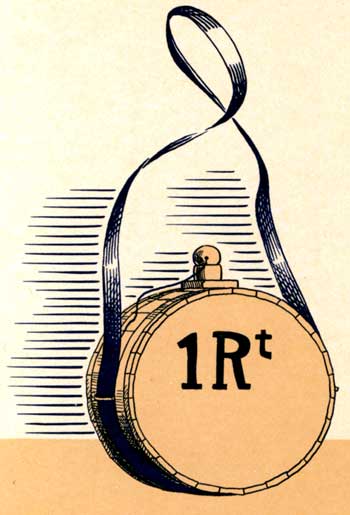|
MORRISTOWN National Historic Park |
 |
How To Reach the Park
Only about 30 miles west of New York City, the park may be reached by automobile from the east via New Jersey Route 24, from the south and north via New Jersey Route 32 (U. S. Route 202), and from the west via New Jersey Routes 6, 10, 5N, and 32. Regional bus lines serve Morristown from main points in the metropolitan area. The town is also located on the D. L. & W. Railroad, whose local trains stop at Morris Street, about 5 minutes' walk from the Ford Mansion and the historical museum.
Establishment and Administration
The first step toward the establishment of Morristown National Historical Park was taken in 1873, when the Washington Association of New Jersey was formed to preserve the Ford Mansion "through future generations as a memorial of George Washington." Among the first of its kind in America, this organization continues active today.
As time passed, the need for saving other historic remains connected with the Revolutionary War history of this locality became more apparent. In the late 1920's, under the energetic leadership of former Mayor of Morristown Clyde Ports, a strong movement developed with that end in view. This was finally crowned with success when the Federal Government, under an act of Congress approved March 2, 1933, accepted from the Washington Association, from the Town of Morristown, and from Mr. Lloyd W. Smith, well-known collector of Washingtonia, munificent and patriotic gifts of those invaluable properties which together—now constitute Morristown National Historical Park. The area was dedicated on July 4 following, as a unit in the National Park System administered by the National Park Service, United States Department of the Interior, for the benefit and inspiration of the people.
About 958 acres in extent, the reservation has at present three separate geographical units: Headquarters Area (Ford Mansion and historical museum), Fort Nonsense Area, and Jockey Hollow Area. All communications concerning the park should be addressed to the Superintendent, Morristown National Historical Park, Morristown, N. J.
Visitor Facilities
The park is open to visitors every day but Monday, including Sunday and all holidays except New Year's Day, Thanksgiving Day, and Christmas Day.
Entrance to nearly all historic sites and buildings in the area is free, subject only to the application of park rules and regulations. Wherever a nominal admission charge is made, complete information on the amount involved is clearly posted on a nearby sign, or may be obtained easily upon request from any park employee.
Members of the park staff are on duty to receive and assist visitors at the Ford Mansion, the historical museum and the Wick House. Descriptive folders and other information may be obtained at all three of these points without charge; sales publications may be purchased at the historical museum only. Personal guide service is not normally available, but educational and other organized groups are given special attention when arrangements are made in advance with the superintendent, and as staff limitations permit.
There are no camping, lodging, or restaurant facilities at the park itself. Limited space is available in Jockey Hollow for visitors who wish to bring basket lunches, but no fires are permitted anywhere in the area. It is also unlawful to hunt, trap, or disturb wildlife; to injure or take away trees, flowers, or other vegetative growth; or to deface or remove other Government property. Visitors must leave the park by 6 p. m. during the winter months, and by 8 p. m. at other times of the year.
Related Areas
Included in the National Park System are many other important areas connected with various periods in American history. In addition to Morristown National Historical Park, those commemorating phases of the Revolutionary War are: Saratoga National Historical Park, N. Y; Colonial National Historical Park, Va.; Kings Mountain National Military Park, S. C.; Guilford Courthouse National Military Park, N. C.; Cowpens National Battlefield Site, S. C.; George Washington Birthplace National Monument, Va.; Moores Creek National Military Park, N. C.; Washington Monument, Washington, D. C.; Statue of Liberty National Monument, N. Y; and Independence National Historical Park (project), Philadelphia, Pa.

American canteen
|
Last Modified: Mon, Dec 2 2002 10:00:00 am PDT |


